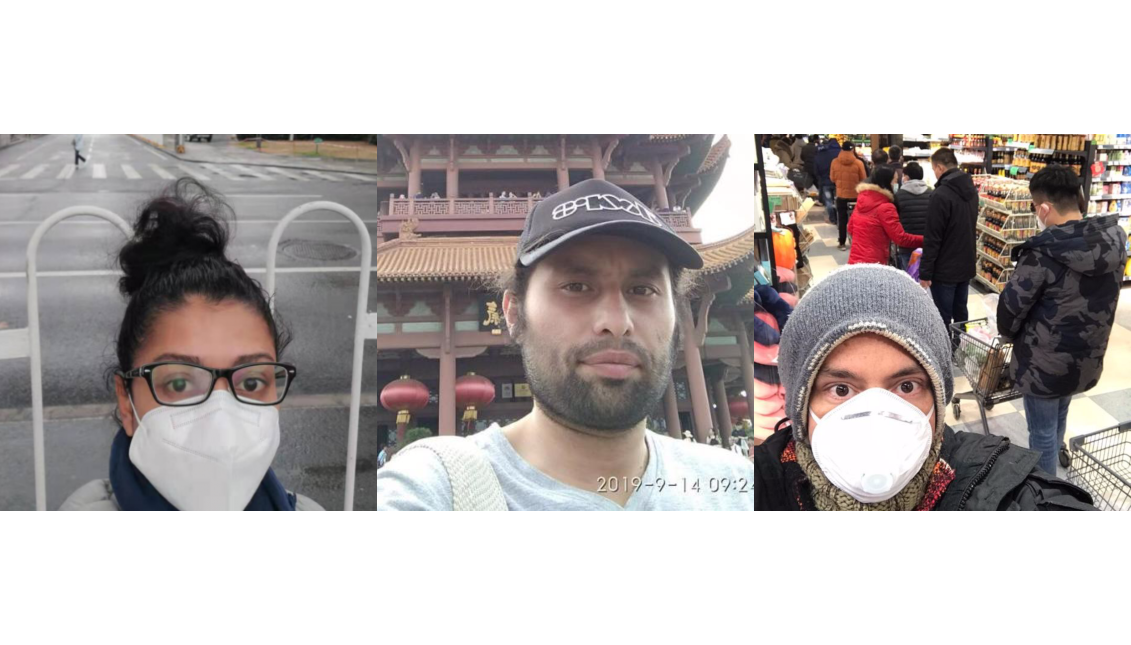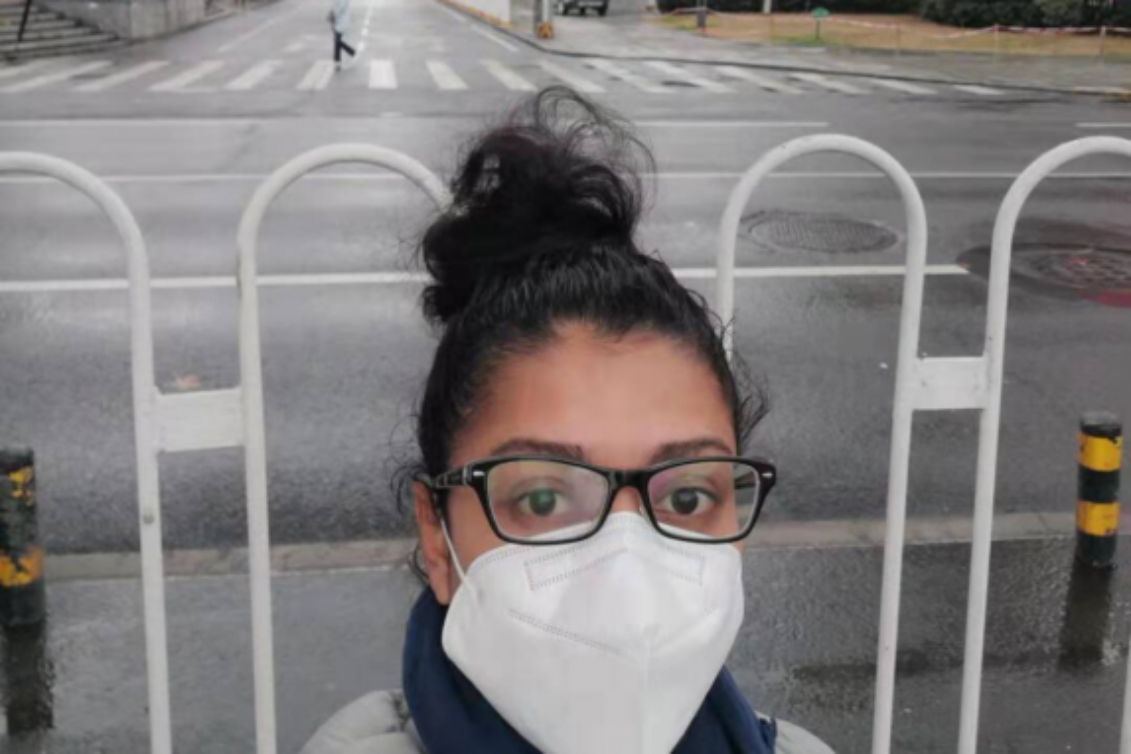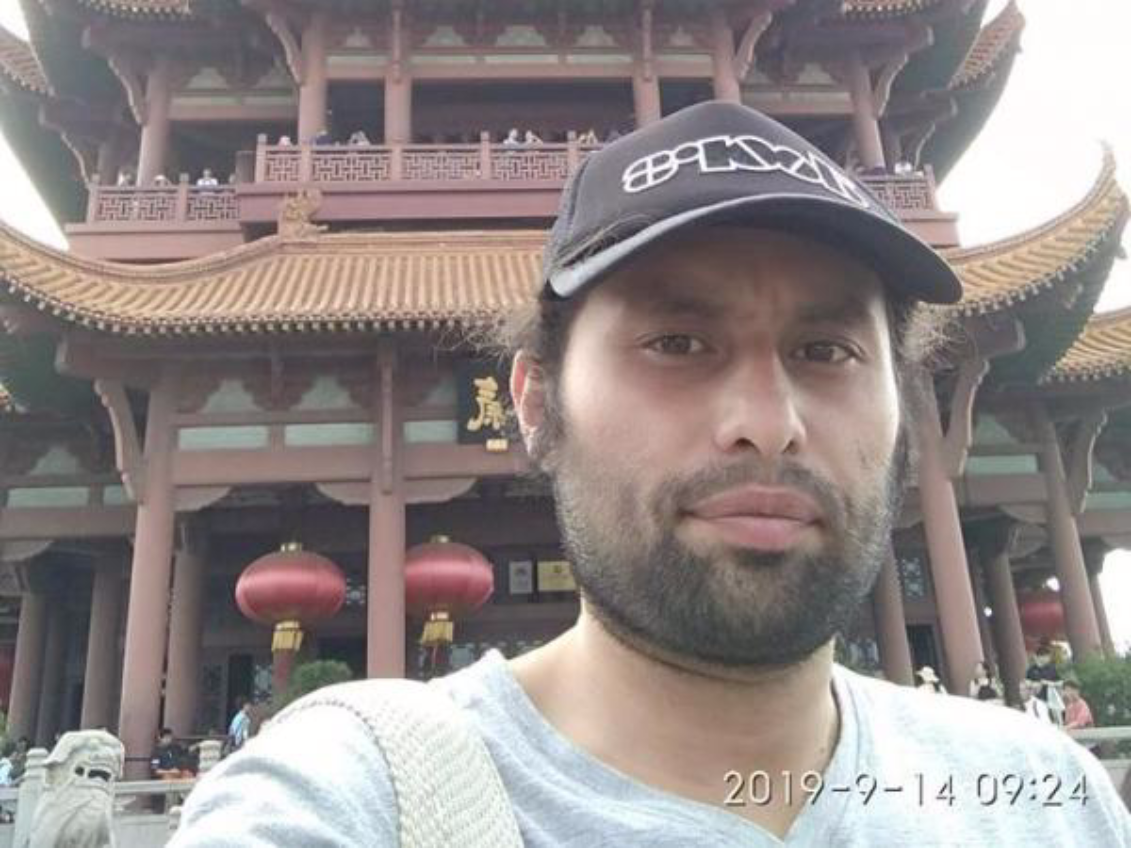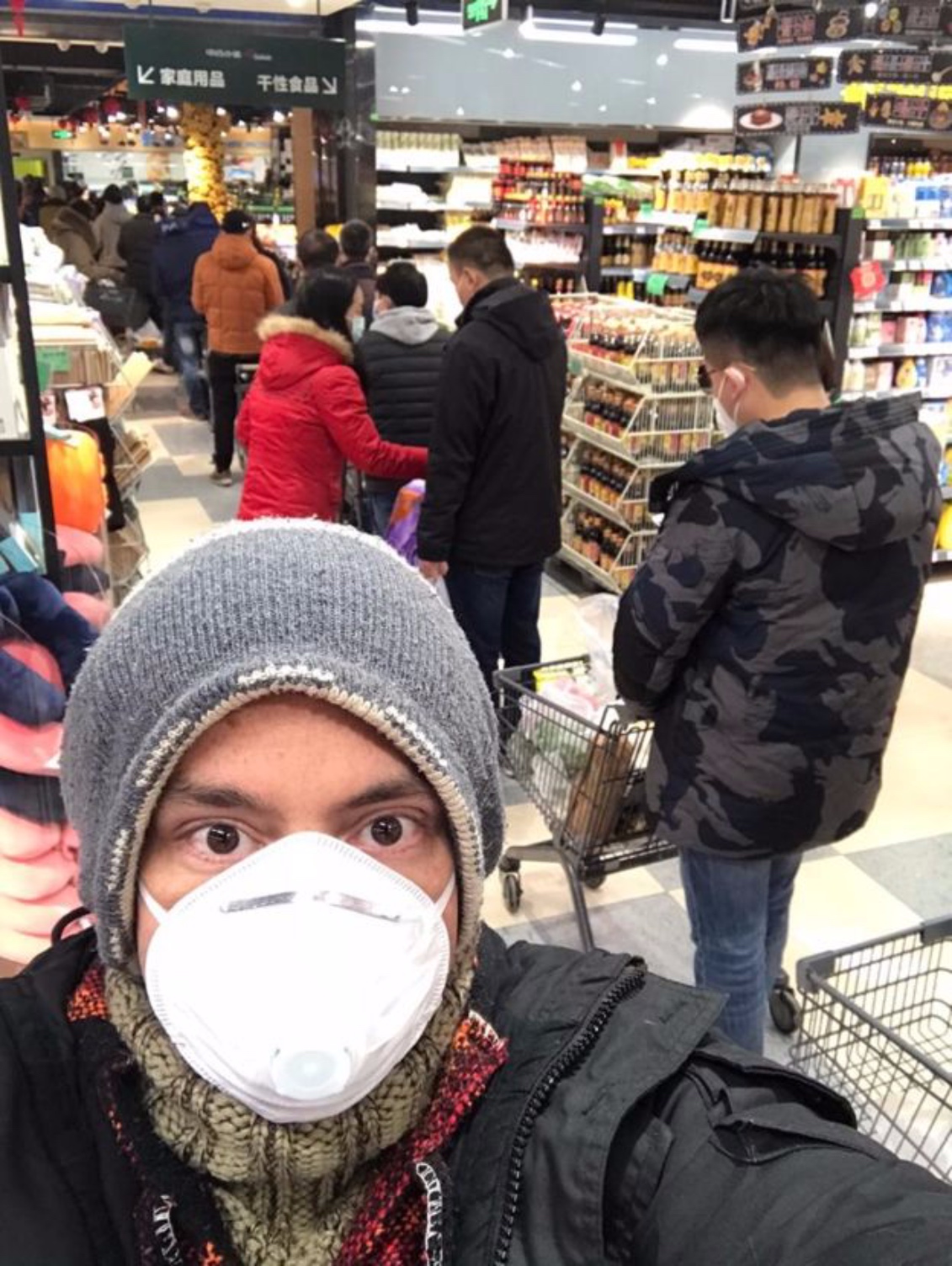
Latinos in Wuhan, the epicenter of the coronavirus
Who are the Latinos in Wuhan and how are they doing?
Wuhan, the origin of the coronavirus epidemic that is worrying the entire planet, is a commercial center in China, which is why it is a place with a high level of multiculturalism. Although the Latino population in this city is small, it exists.
Here we tell you about three Latinos in Wuhan: a Guatemalan, a Colombian and a Mexican.

Celia Esquivel is originally from El Progreso, Jutiapa, in southeastern Guatemala. She has lived in Wuhan with her husband and son for nine years. She told the investigative journal Nómada that she and her son are the only Guatemalans in the region. And since Guatemala has no relations with the Popular Republic of China, she is registered with the Guatemalan embassy in Taiwan, which, until the time her profile appeared on Nómada, had not communicated with her.
But the Guatemalan embassy has her in mind to swell the list of merits of the compatriots, since Celia is the first Guatemalan to have obtained her bachelor's and master's degrees in Mainland China, and the highest certifications in Chinese endorsed by the government.
With regard to the state of alert and tension, Celia comments that it is equivalent to a state of war: "In the centre of Wuhan city, on Jianghan Pedestrian Street, the most commercial and most mobile part of the city, there is no one."
Even so, she says that the supermarkets are full of people and they measure the temperature of everyone at the entrance, in order to rule out possible cases of contagion. She feels reassured because it seems clear to her that everyone has done their best to contain the epidemic and that this is a guarantee of safety for everyone.
With frank stoicism, she emphasizes how dedicated Chinese culture is to working for the common good: "On this occasion, the reason why Wuhan was isolated from the rest of the country was also for the common good, that of the rest of the Chinese residents. The government has 'sacrificed' 11 million people for the sake of the rest of the country, a country of 1.4 billion people. And this is something I think is very good, thinking about the common good."

Carlos came to town six months ago. He left his native Bogota with a scholarship to pursue a master's degree in higher education at Wuhan University.
As Carlos told the Colombian newspaper El Tiempo, it is possible that the epidemic occurred at a relatively favorable time, because many people had left the city to visit relatives for the lunar new year celebrations. And when the city was closed, no one went back in or out, containing the disease.
Carlos and Celia agree that the streets are deserted, although the Colombian emphasizes on the difficulty of moving around the city: "It is difficult because the metro stations are closed, no means of transport works, that - in any case - shows the commitment to prevent the spread".
Apart from the empty streets, it is only possible to go to the supermarkets, so Carlos spends his days in his room, waiting for new measures to be taken by the government:
"I don't feel afraid, I don't panic, I'm calm. The city is alone, but that is also because of the Chinese New Year holidays. One is left with uncertainty as to how the issue begins to evolve. You have to be calm.
For now, he knows that schools are giving classes virtually, perhaps the same thing will happen with his university?

Daniel Stamatis arrived in Wuhan four years ago (he has been in China for seven). He is currently doing a PhD in bamboo architecture at Huazhong University of Science and Technology.
Daniel, in his BBC profile, also draws attention to the deserted streets, the complete lack of public transport, the temperature measurements at the entrance to the supermarkets and the loneliness in his student room.
Daniel returned to Wuhan on January 19, after attending a wedding celebration in Mexico. Ironically, he commented that if he had scheduled his return a couple of days later he would never have taken off and would have been safe.
RELATED CONTENT
His girlfriend, by one of those coincidences he would have wished, left Wuhan a day before the city was closed.
However, Daniel's luck took an unexpected turn.
A few days ago, when it became known that the U.S. government would send airplanes to Wuhan to repatriate its citizens, a Mexican friend in Indonesia proposed to Daniel to try to use it. After all, he has had an American visa since he was six years old.
Faced with the embassy's cordial but inefficient response, Daniel changed his strategy, he used Twitter:
@USAmbMex Hay alguna posibilidad de que me suba al avión que USA envía a Wuhan para sus ciudadanos? Soy Mexicano en Wuhan, con Visa Americana. Presidente Xi Jinping anuncia que virus acelera. Mil gracias. https://t.co/9wgkR7sr9s
"I found it impressive, in 10 hours the ambassadors answered, they called me from here, from China... They told me that it could be done, that they would take it into account, that nobody had ever asked them," Daniel told the BBC.
"I didn't have the idea to get out of here because when they do shut you down, they shut you down. There's not much discussion. But if another country, and especially the northern neighbour, is going to send planes, well I'm going on the wing, I don't care".
"I'm not desperate because somehow I'm fine, I have food, I feel good physically, I haven't seen anyone die in the street... I don't even want to be a fatalist, but I don't want to be an idiot either. I'm just saying I don't want to sit around... I just saw a tiny opportunity, a tiny window... where I might fit."
Daniel's wish came true on January 28, one day after the BBC published his profile, as he was repatriated by the Mexican government.
"The Mexican citizen is already on his way, he is coming soon and he is in perfect condition. It's not a situation of an urgent transfer," said Hugo López-Gatell, Mexico's undersecretary for prevention and health promotion, who also said that the other Mexicans in the city are calm and preferred to stay.
In contrast to his part of calm, the undersecretary also said that the coronavirus would arrive in Mexico sooner or later, because there is no infallible mechanism to contain it, but that the country's health system was ready to deal with it.
On Wednesday 29th an American aircraft landed in California from Wuhan, carrying diplomats and American citizens. They are currently in voluntary quarantine, and Daniel seems to be among them.










LEAVE A COMMENT: